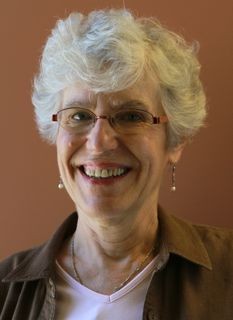
INTRODUCTION
Dr. Sharp obtained her Ph.D. in Biological Chemistry from the University of California, Los Angeles, School of Medicine, and her postdoctoral training in Molecular Biology in the Division of Chemistry at California Institute of Technology, Pasadena. In addition to her research and research mentoring endeavors at Cal State, LA, Dr. Sharp works with faculty from CSU campuses statewide to enhance CSU biotechnology teaching and research programs. She is a member of the Strategic Planning Council for the California State University Program for Education and Research in Biotechnology (CSUPERB).
TEACHING INTERESTS
The classes Dr. Sharp has taught include Principles of Gene Manipulation, Animal Cell Culture Theory and Technique, Molecular Diagnostics, From Concept to Market (a survey of careers in and the steps of product development in the biotech industry), a graduate level lab in Genetic Engineering, and Writing for Biologists lab. She established the original version of the post-baccalaureate Biotechnology Certificate Program, currently directed by Dr. Howard Xu in Biological Sciences. She worked with other faculty and campuses to develop offerings and opportunities in bioinformatics. Currently, she provides research experience for undergraduate and graduate students in her laboratory in the Department of Biological Sciences.
RESEARCH
An important goal in biomedical research is to understand the molecular pathways and mechanisms that regulate development, particularly those that regulate the transition from cell proliferation to cell differentiation. We aspire to contribute to the understanding of the mechanisms that regulate normal differentiation in order to enable the development of successful medical approaches to both developmental disorders and cancer. Our model system is muscle development or myogenesis. We currently have three major projects.
The first project uses whole animals and molecular studies to test the hypothesis that either the generally expressed tumor suppressor transcription factor p53 or the muscle-specific transcription factor MyoD must be expressed for successful completion of myogenesis in vivo.
The second asks whether the recently discovered MyoD binding sites found downstream of the skeletal muscle actin gene work together with the well-known binding sites upstream of the gene to regulate the efficiency of its expression. We are using plasmid reporter constructs and myogenic cells in culture to answer this question.
The third project asks whether the MyoD bound upstream of the Id2 and Id3 genes contribute to the efficiency of their expression during proliferation and the transition to differentiation. The Id proteins inhibit differentiation. We are using cell lines that do or do not express MyoD, together with reporter assays, to answer this question.
Dr. Sharp has had the good fortune to have had many wonderful students in her lab. Some have gone on to complete advanced degrees. Many are already making their contributions in industry, academia, and the health professions. There are currently no openings in the lab.
PUBLICATIONS AND PRESENTATIONS
| Title | Date |
|---|---|
| Krilowicz, B., W. Johnston, S.B. Sharp, N. Warter-Perez, J. Momand. A summer program designed to educate college students for careers in bioinformatics. CBE:Life Sciences Education 6:74-83. | 2007 |
| Sharp, S.B., M. Villalvazo, A. Espinosa, S. Damle, X. Padilla, J. Hartono, R. Gonzalez, S. Vu. BC3H1 myogenic cells produce an infectious ecotropic murine leukemia virus. In Vitro Cell. Dev. Biol.--Animal 38:378-381. This article was chosen for highlighting by the Society for In Vitro Biology. | 2002 |
| Sharp, S.B., M. Villalvazo, M. Huang, R. Gonzalez, R. Alarcon, M. Bahamonde, D. D'Agostin, S. Damle, A. Espinosa, S. Han, J. Liu, P. Navarro, H. Salguero, J. Son, S. Vu. Further characterization of BC3H1 myogenic cells reveals lack of p53 activity and underexpression of several p53 regulated and extracellular matrix associated gene products. In Vitro Cell. Dev. Biol.--Animal 38:382-393. | 2002 |
| Green, N., S. Vu, S. Farahmand, and S.B. Sharp. Limited T4 Exonuclease Activity and Partial Fill-in Expand Insertion Site Options for PCR Subcloning. Biotechniques 27:914-916. | 1999 |
| McQueen, N.L, and S.B. Sharp. Molecular Diagnostics -- an upper division/graduate course. Biochemical Education 27:145-149. | 1999 |
| Sharp, S.B., S. Kim, M. Lee, L. Sunday, E. Enriquez, M. Villalvazo, A. Ghebremedhin, L.S. Carvajal, P. Momjian, and S. Avari. Culture of C2C12 and BC3H1 myogenic cells with iron-supplemented calf serum; rapid media screen. In Vitro Cell. Dev. Biol.--Animal 31:749-751. | 1995 |
| Sharp, S.B., A. Vazquez, M. Theimer, D.K. Silva, S.R. Muscati, M. Sylber, and M. Mogassa. The levels of vascular smooth as well as skeletal muscle actin mRNAs differ substantially among both myoblast and fibroblast lines with different skeletal myogenic potentials. Cellular and Molecular Biology 38: 485-504. | 1992 |
| Sharp, S.B., T.A. Kost, S.H. Hughes, and N. Davidson. Regulation of chicken α and β actin genes and their hybrids inserted into myogenic mouse cells. GENE 80: 293-304. | 1989 |
AWARDS
| Year | Award |
|---|---|
| 2006 | Distinguished Women Award, Cal State LA |
| 2005 | Anthony Andreoli Faculty Service Award from Statewide CSU Program for Education and Research in Biotechnology (CSUPERB) |
EDUCATIONAL BACKGROUND
B.A., 1967. Zoology, Minor in Chemistry
- University of California, Berkeley
Ph.D., 1981. Biological Chemistry
- UCLA School of Medicine